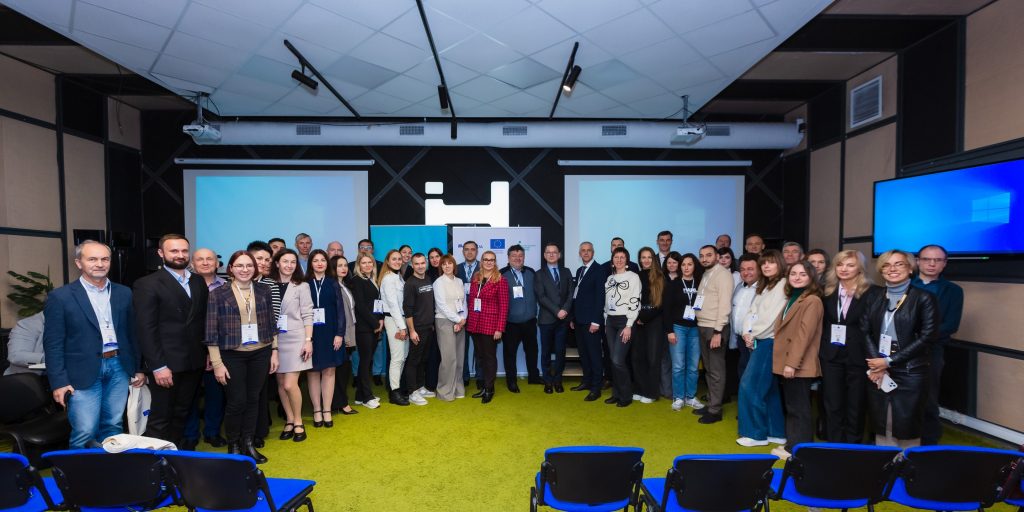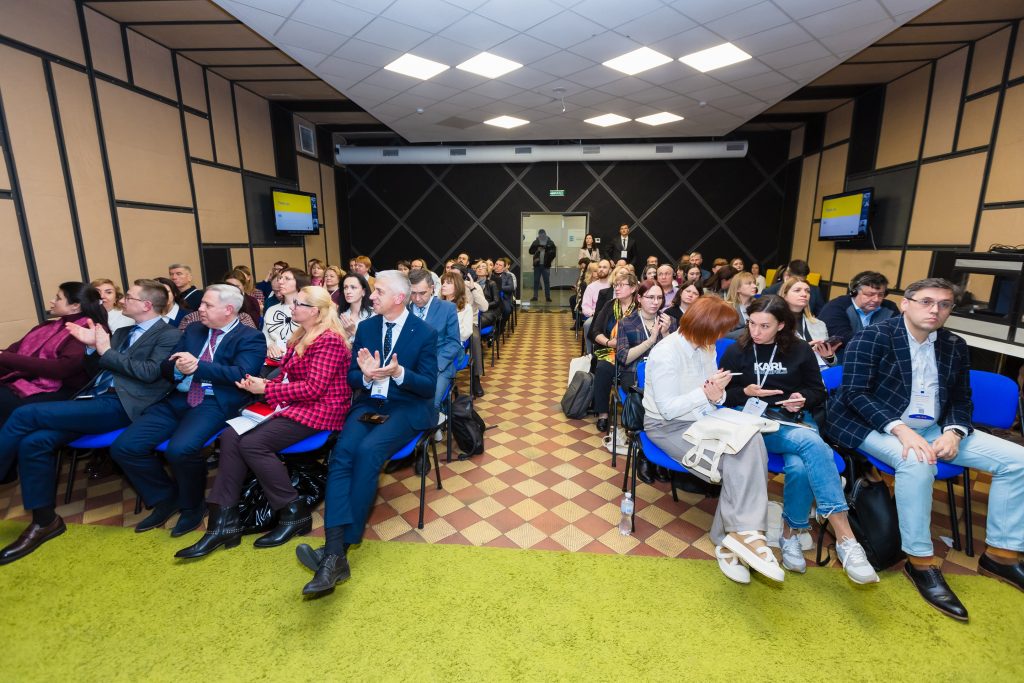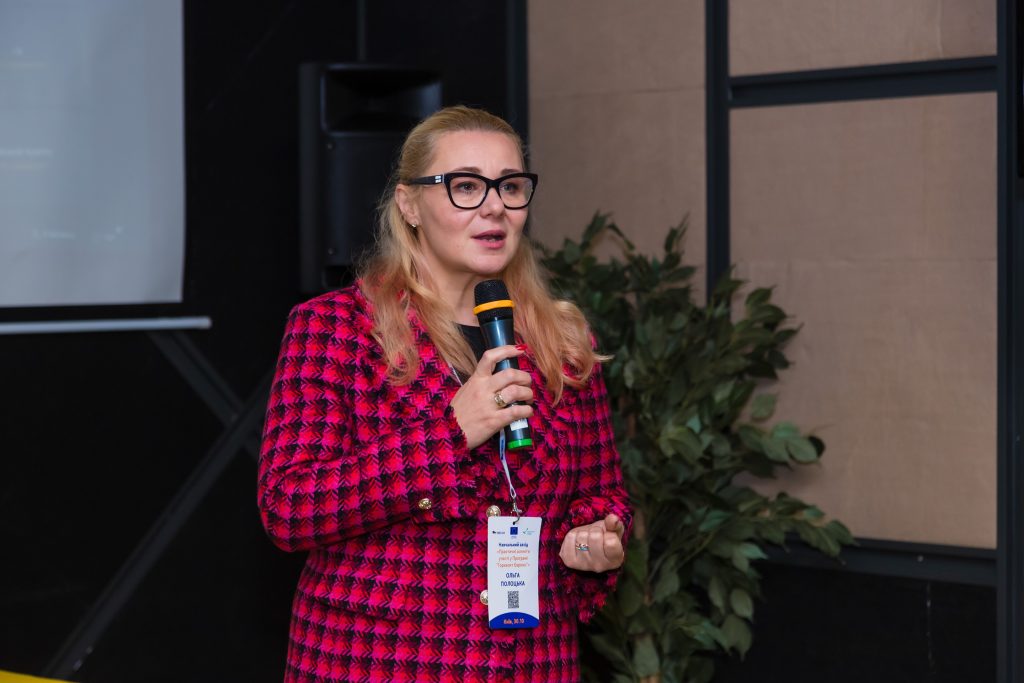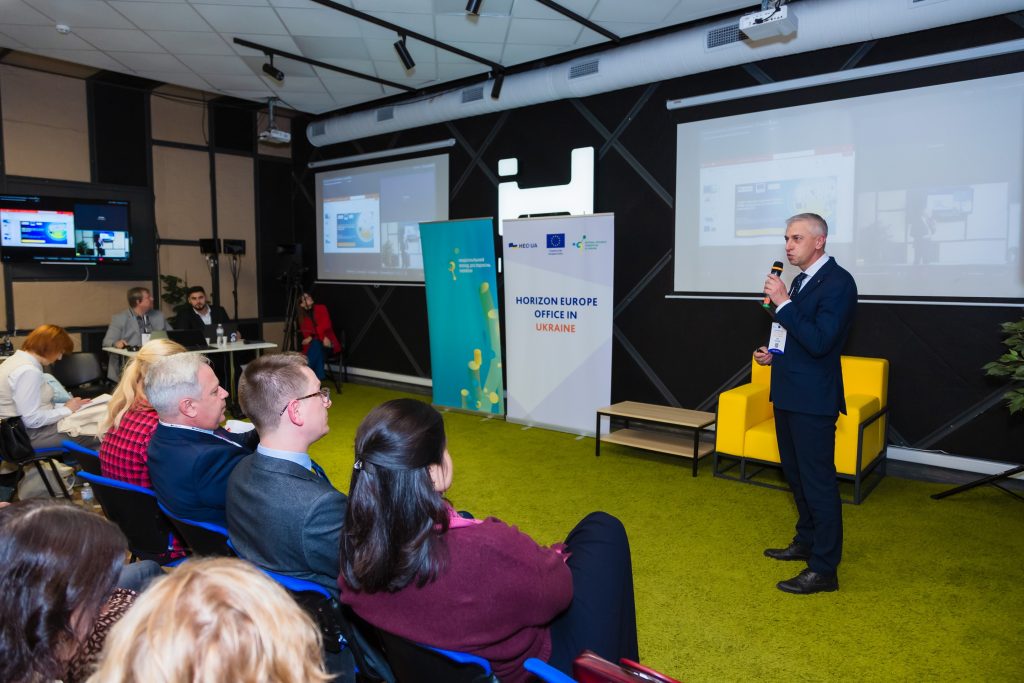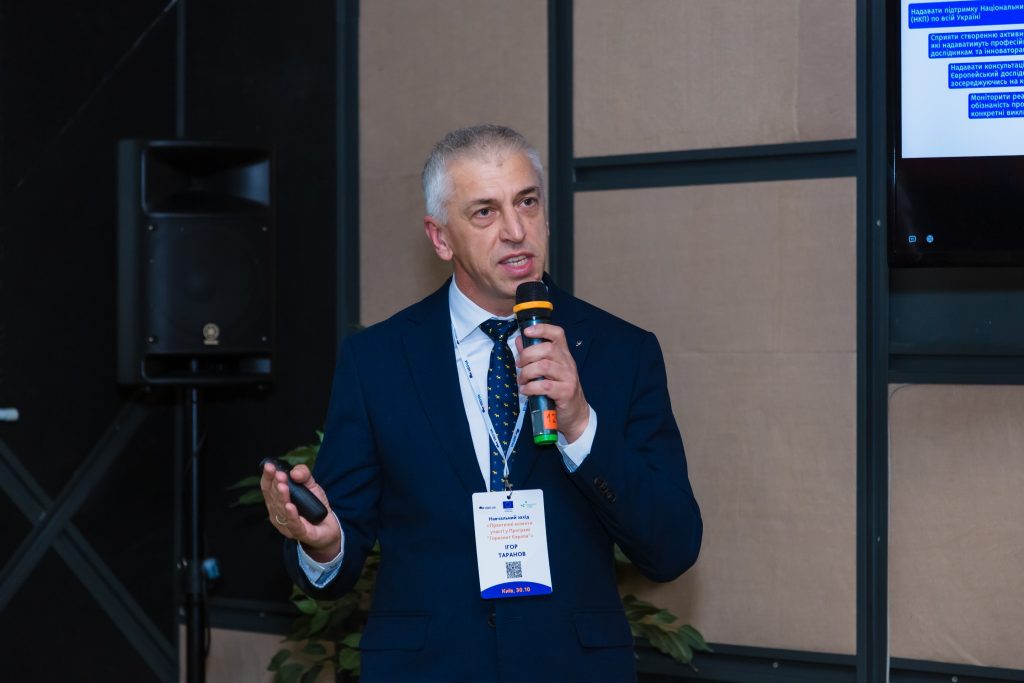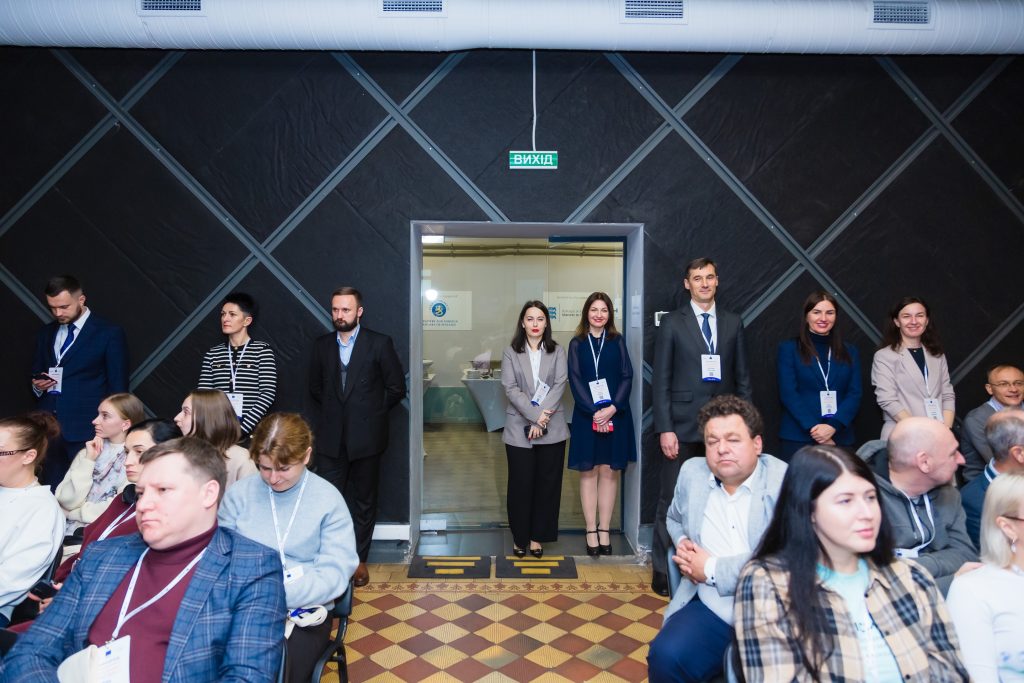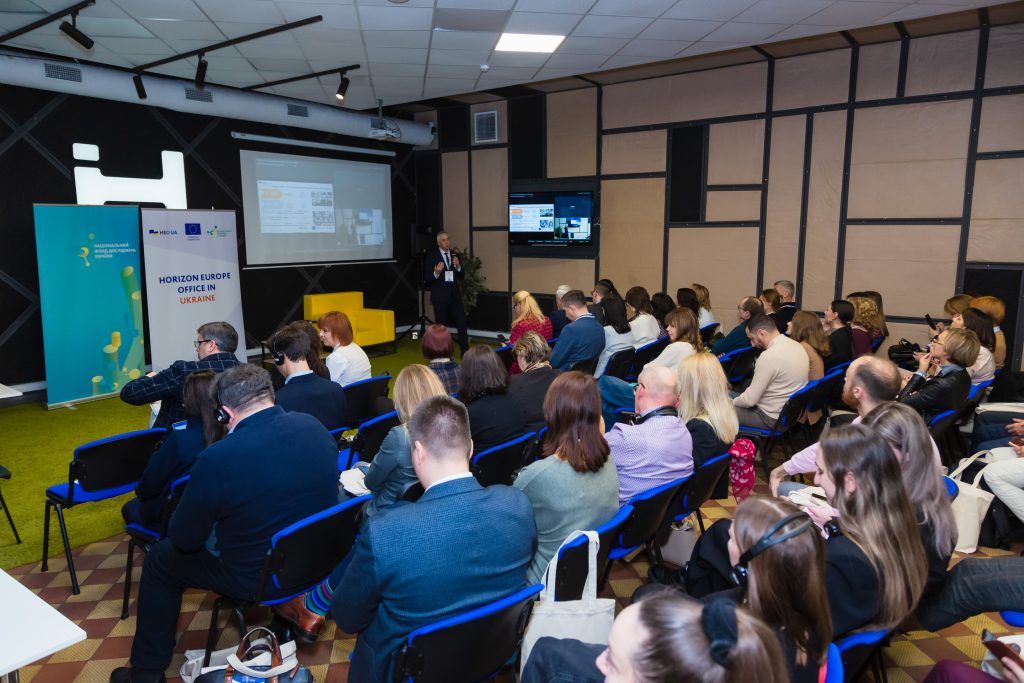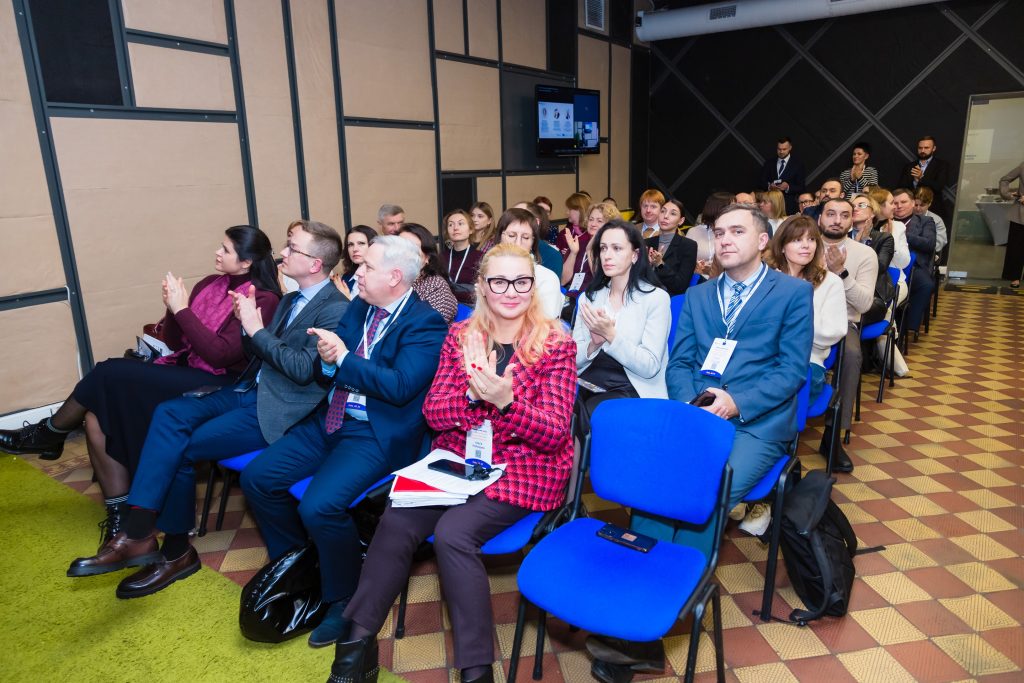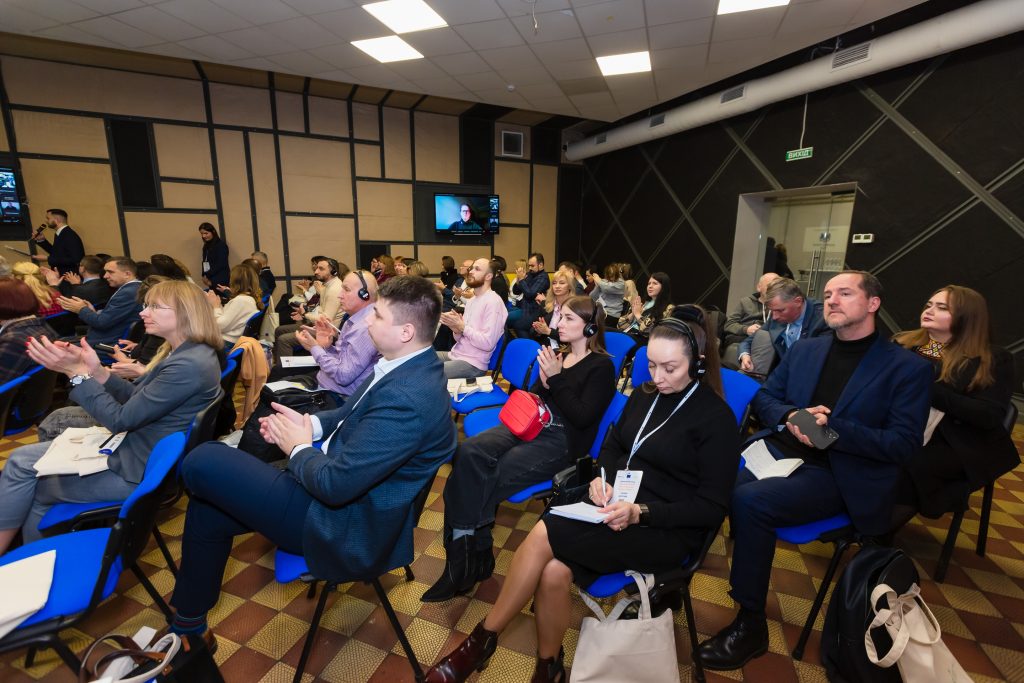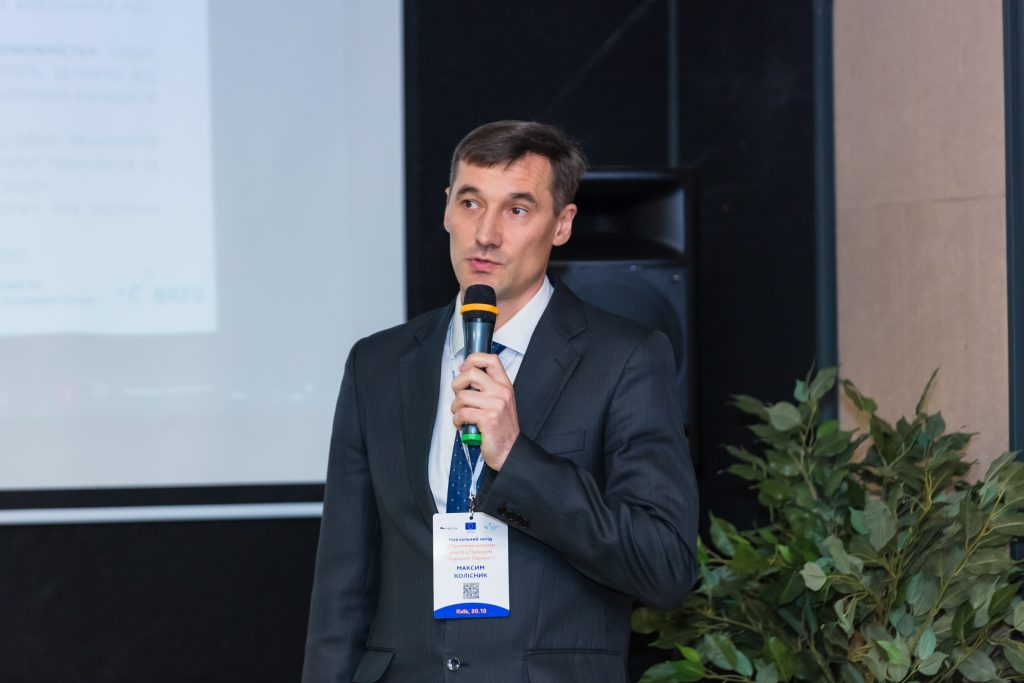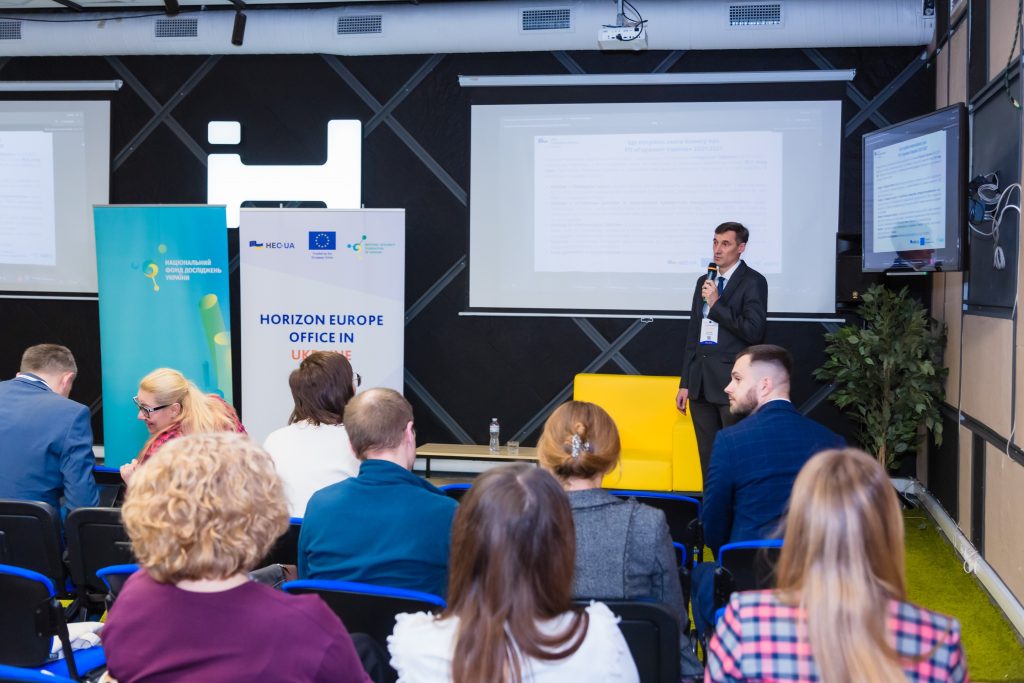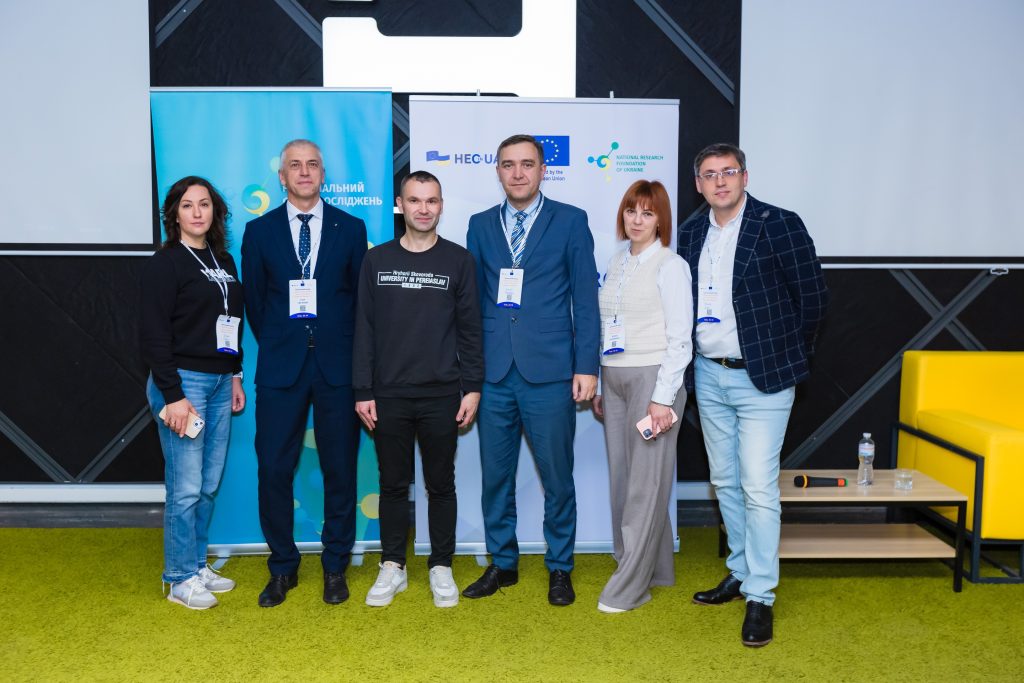Practical Aspects of Participation in the Horizon Europe Programme: Results of the Year of Activity of the Department Horizon Europe Office in Ukraine
On October 30, the team of Horizon Europe Office in Ukraine, NRFU held a training event “Practical aspects of participation in the Horizon Europe Programme”. The event was timed to the first anniversary of the Office’s activity on the basis of the National Research Foundation of Ukraine. Among the invited guests were representatives of the Ministry of Education and Science of Ukraine, the European Commission, international research institutions and complementary programmes.
The event was opened with a welcoming speech by Carole Mansel-Blanchard, Head of Unit RTD 03, International cooperation, Europe and Americas, EC. In her welcoming remarks, Ms. Mansel-Blanchard emphasised the importance of Horizon Europe for the development of scientific capacity, innovation and cross-border cooperation in Europe and beyond. She underlined the European Commission’s commitment to support Ukraine’s participation in the Programme, emphasising that the EU’s 9th Framework Programme for Research and Innovation provides a unique opportunity for Ukrainian researchers, innovators and institutions to deepen their engagement with the European research community, contributing to collective progress towards a sustainable, resilient and inclusive future.
The participants were also greeted by Hryhoriy Mozolevych, Director General of the Directorate for Science Development at the Ministry of Education and Science of Ukraine, Yehor Pyvovarov, Policy Officer at the Operations Division II of the EU Delegation to Ukraine, Stanislav Vilchynskyi, Head of the National Research Foundation of Ukraine, and Olga Polotska, Executive Director of the National Research Foundation of Ukraine.
The working part was opened by Igor Taranov, Head of Horizon Europe Office in Ukraine, who presented the results of the Office’s work during the year of its operation and the importance of the Programme for Ukrainian participants. For his part, Frederik Sondergaard, Policy Officer, DG Research and Innovation, Unit 03 Horizon Europe Association, European Commission, spoke about Ukraine’s participation in Horizon Europe. Kristin Kraav, Deputy Head of the International Scientific Cooperation Department of the Estonian Research Council, presented the Estonian experience of participating in the Programme. Angela Liberatore, Head of the Scientific Department at the European Research Council, informed about the opportunities for Ukrainian participants in the context of the ERC.
In addition, Vivi Stavrou, Executive Secretary, Committee for Freedom and Responsibility in Science, Senior Science Officer at the International Social Council, France, emphasised the key role of global partnerships in improving the quality and dissemination of research results, noting that Horizon Europe’s focus on collaborative projects provides Ukrainian researchers and institutions with a unique platform to interact with a diverse network of international experts. She emphasised that expanding international networks is important not only to foster innovation, but also to address complex global challenges that no country can tackle alone.
In the context of the synergies between Horizon Europe and other EU project initiatives, Ronald de Bruin, Director of the COST Association, emphasised the strategic importance of COST as a mechanism for creating and supporting scientific networks that promote knowledge exchange, interdisciplinary collaboration, and support for early career researchers across Europe. COST events enable participants from different disciplines and geographical regions to work together on common scientific and societal challenges.
In addition, Natalia Voloshyn, manager of the NGO “Forza”, made a presentation on the key success factors for achieving excellence within Horizon Europe. Drawing on her organisation’s experience in European projects, the speaker emphasised that leveraging experience, generating innovative ideas, and developing strategic contacts are critical for any organisation that wants to succeed under the Programme.
Mykola Dzubinsky, C4 Euratom Research, DG Research & Innovation, European Commission, made an expert presentation on Ukraine’s participation in the Euratom Research and Training Programme (2021-2025). Elisa Braeckevelt, representative of the German Research Foundation, and Victoria Reichl, Deputy Director of KoWi and Director of Brussels Office, also joined the event. The speakers discussed the evolution of opportunities for Ukrainian researchers to participate in EU research programs, briefly outlining both existing support mechanisms and strategic initiatives aimed at strengthening Ukraine’s integration into European research networks.
At the end of the event, Maksym Kolisnyk, Leading Officer of Horizon Europe Office in Ukraine, presented a detailed overview of business opportunities within the Programme. In his presentation, the speaker provided comprehensive information on the latest open calls for proposals aimed at private sector participation. The presentation outlined the key areas where Ukrainian businesses can contribute to high-performance European consortia, in particular in areas that are in line with EU strategic priorities, such as digital transformation, green energy transition and sustainable economic growth.
Summarising the event, Olga Polotska, Executive Director of the NRFU, thanked everyone for their active participation and emphasised the exceptional importance of international cooperation and Ukraine’s integration into the European research area. She noted that active participation in the Horizon Europe Programme plays an important role in developing Ukraine’s research potential and promoting scientific innovations that meet European priorities.
After the training, a networking session was held to support open discussions and facilitate networking among the participants. During this part of the event, the participants had the opportunity to share their impressions of the day and discuss areas for future research cooperation.
